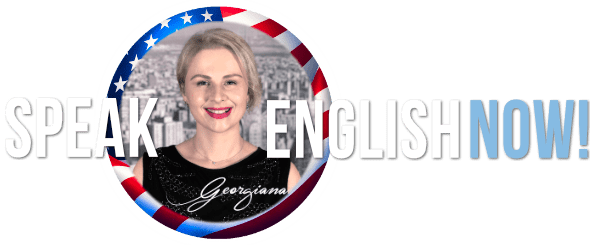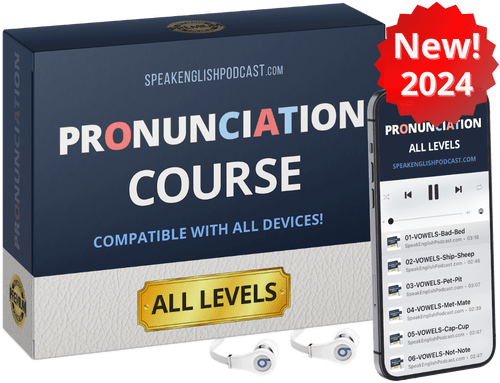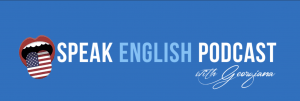Transcript:
Hi everyone!
I’m Georgiana; founder of SpeakEnglishPodcast.com. My mission is to help YOU speak English fluently.
Today, I’ll talk about how we use conditionals in English.
After that, we’ll practice them with a Point Of View Story.
Ok, let’s get started!
I’m going to review the different conditionals in English. I don’t recommend you to memorize them, but to understand them. You need plenty of contexts, and the best way to practice the conditionals is by using the Point of View story technique.
Conditionals in English aren’t complicated. I’m going to give you some examples:
Zero conditional
Here, we talk about things which are always true. For example:
If you heat water, it boils.
If you heat ice, it melts.
If it rains, the grass gets wet.
First Conditional
We use the first conditional when we talk about a probable result. For example:
If you study more, you’ll pass the exam.
If I have time, I’ll help you.
Second Conditional
We use the second conditional in case we want to express less probability.
I know you’re busy, but if you went to the cinema, you’d enjoy the new Star Trek movie.
If you studied more, you’d pass the exam.
As you can see, this is more hypothetical. “If you went to the cinema”, means you won’t probably go, but if you went, then you’d like the movie. In the second example happens the same: If you studied more…it seems that you aren’t currently studying enough.
Third Conditional
This third conditional is in the past. We talk about an alternative result about something that happened in the past. For example:
If you had studied more, you would’ve passed the exam.
If I had had more time, I would’ve helped you.
If I had visited you, I could’ve helped you.
In the third conditional, everything happens in the past, and we just express a different result if things weren’t different in the past.
Let’s quickly review the first, second, and third conditional with a common example:
If I have enough money, I’ll buy a ticket to travel to New York.
If I had enough money, I would buy a ticket to travel to New York.
If I had had enough money, I would’ve bought a ticket to travel to New York.
Can you see how the tenses change?
(END OF THE EXTRACT).
Get the transcript in pdf here.
Resources:
- Audio en mp3 (right click to save the audio)
- Transcript Episode pdf (right click to save the transcript)




I like your method, do you have an accelerate mode of teaching this method with coaching or some kind of different tools? like online course…
Thank you
Excelente assunto sobre Conditional points. I like a lot teacher Georgiana.
Hi Georgiana,
I’ve just started to learn from your podcast, I really like your method of teaching it is brilliant. Thank you
Very interesting way to raise awareness on three conditionals. Thank you.
You have his way teaching a shepherd and his fun, thank you, my teacher is capable